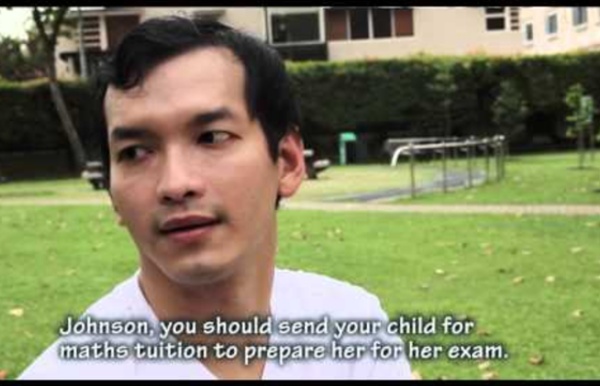



http://www.youtube.com/watch?v=-CLXVQBMBDg
Related: 4 Types of Parenting Styles and Their Effects on Children • Four Parenting StylesParenting Style Quiz Instructions: This quiz is designed to help you better understand your parenting style. For each item, indicate how much you agree or disagree with the statement. This takes most people about 4 minutes to complete. The Risks Of Having An Uninvolved Parenting Style Updated July 13, 2019 Do you know what type of parenting style you have, or what type your parents had? Knowing what parenting style(s) a child was raised with can tell you a lot about their behavior as they age, and even when they start raising their kids. Parenting style can affect many things, like a kid's self-esteem, behavior, and even their mental health. Some parenting styles are known to lead to better outcomes for kids than others. Authoritative parents are typically seen as the most effective because of their balance of authority and empathy.
Permissive Parenting (Characteristics and Effects) Permissive parenting is a type of parenting style characterized by low demands with high responsiveness. Permissive parents tend to be very loving, yet provide few guidelines and rules. These parents do not expect mature behavior from their children and often seem more like a friend than a parental figure. These parents tend to be the polar opposite of the so-called "helicopter parents." Instead of hovering over their children's every move, permissive parents are incredibly lax and rarely make or enforce any type of rules or structure.
Parenting styles observe in Singapore SINGAPORE: It really didn’t seem that long ago when the Stop at Two campaign was in full swing, warning parents in Singapore that “the more you have, the less they (each) get”. Yet, the challenge today isn’t to discourage families from having many children, but to coax or even cajole young Singaporeans to get married earlier and have them. Compared to a few decades before, family sizes are shrinking as new parents tend to have less children. Couples satisfy themselves with one or two kids being the norm, and three the exception.
Uninvolved Parenting Style - Traits And Effects on Children Uninvolved or neglectful parenting is a considerably new parenting style that does away with hand-holding and guiding the children. It lets them learn by themselves. Parents could be uninvolved in varying degrees. While most parents look after the basic needs such as food and shelter for their kids, some others neglect their children completely. MomJunction gives you deeper insights into uninvolved or neglectful parenting and whether or not it is healthy for your kids. What Is Neglectful Or Uninvolved Parenting Style? Authoritative Parenting (Characteristics and Effects) Authoritative parenting is characterized by reasonable demands and high responsiveness. While authoritative parents might have high expectations for their children, they also give their kids the resources and support they need to succeed. Parents who exhibit this style listen to their kids and provide love and warmth in addition to limits and fair discipline.
Example of tailoring parenting style to individual child "At the time, I chafed at such rigid structures... Yet, looking back, I realise how this sort of parenting helped me become the person I am today. The supervision, discipline and structure helped give me a form of security in my life." By conventional standards, my mother would be labelled a strict parent.
Characteristics and Effects of Uninvolved Parenting Uninvolved parenting, sometimes referred to as neglectful parenting, is a style characterized by a lack of responsiveness to a child's needs. Uninvolved parents make few to no demands of their children and they are often indifferent, dismissive, or even completely neglectful. The Major Parenting Styles Authoritarian Parenting (Characteristics and Effects) Authoritarian parenting is a parenting style characterized by high demands and low responsiveness. Parents with an authoritarian style have very high expectations of their children, yet provide very little in the way of feedback and nurturing. Mistakes tend to be punished harshly. When feedback does occur, it is often negative. Yelling and corporal punishment are also common in the authoritarian style. During the 1960s, developmental psychologist Diana Baumrind described three different types of parenting styles based on her research with preschool-age children.
Many Singaporeans’ parenting style not helping children succeed - TODAYonline I was disturbed to read the report “MP proposes piloting cluster of schools without exams, streaming” (Jan 22). In the current debate on how best to restructure the education system, more people seem inclined to wash the outside of a dirty cup and call it clean, but leaving the inside filthy as ever. An examination-free education system would serve only to mask the inadequacies of the current generation of pupils, rather than help them to succeed. While some of the pressure they face is due to the existing system, my experience as an educator tells me that the root problem lies with the quality of young people now.
Permissive Parenting: Its Characteristics And Effect On Children Image: Shutterstock Daniel’s parents were highly affectionate to him. He was allowed to sleep late and wake up whenever he wanted. He was allowed to play loud music even if it disturbed the neighbors. He had his way almost all the time. You might wonder if there is any parenting involved at all.
Parenting Styles and Child Behavior — Psychology In Action More extensive research is critical to enhancing the field’s current understanding of parenting styles and the role they play in child behavioral outcomes. An increased understanding of the roots of different parenting practices, may enable the field to more effectively address the environmental factors that lead parents to adopt less ideal strategies. This research should be used to guide the development of more effective prevention and intervention programs aimed at fostering adaptive behavioral development in children.